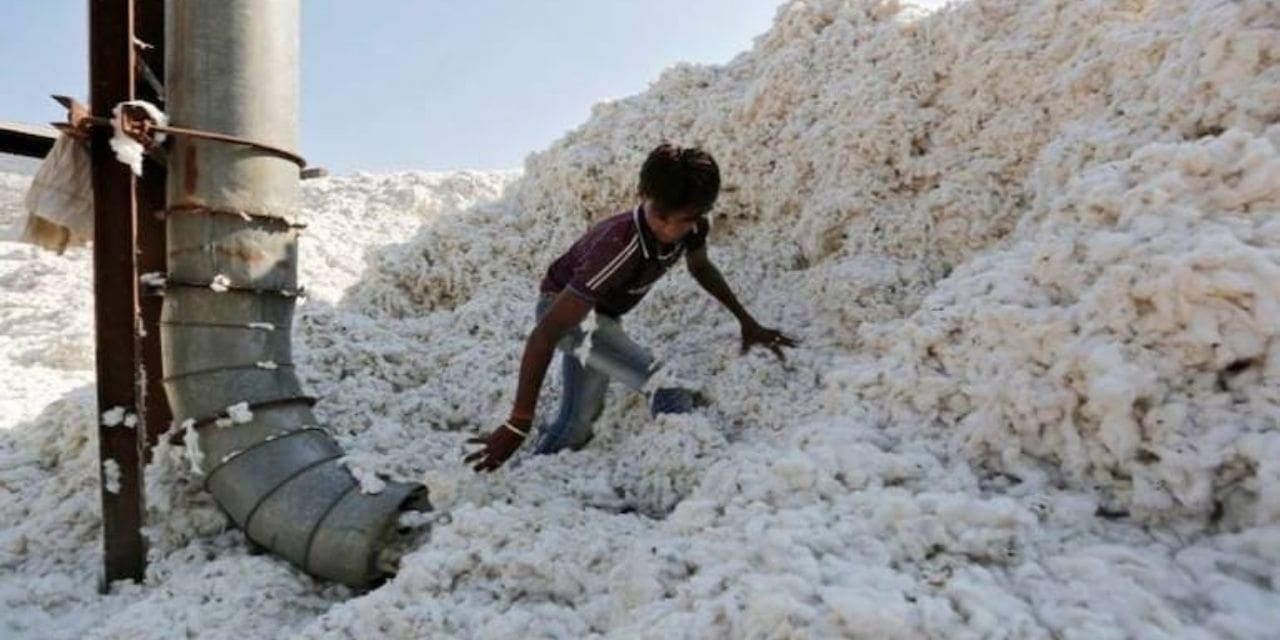The predominantly cotton based textile industry is facing a long drawn recession on cotton front as the cotton price has increased from Rs 44,500/- per candy in February 2021 when the 11% import duty was levied on cotton to Rs 90,000/- per candy now. The steep increase in cotton price and its impact on prices of yarns and fabrics is severely impacting the potential growth of the cotton textile value chain. Though the industry could manage the unprecedented COVID pandemic challenges with various policy interventions relating to export especially RoDTEP, RoSCTL etc., the industry started incurring cash loss and facing difficulty in meeting the export commitments. It is feared that the industry might face cotton shortage during August to October resulting in industrial unrest. There is no reliable data available regarding the stock maintained by the kapas traders, ginners and cotton traders. In the case of spinning mills, only around 40% of the mills provide data to the office of the Textile Commissioner. Therefore, the cotton traders are hoarding the cotton and speculating the price on a daily basis taking advantage of futures trading in MCX and NCDEX. Though the cotton prices occasionally move in tandem with international price, quality cotton is not sold and mills started facing shortage. Therefore, the industry has been demanding to withdraw the 11% import duty to have a level playing field, sustain the export performance and compete with the cheaper imports from countries like Bangladesh.

In a joint Press Meet held today at SIMA Conference Hall, Coimbatore, Mr.T.Rajkumar, Chairman, Confederation of Indian Textile Industry (CITI), Mr.Ravi Sam, Chairman, The Southern India Mills’ Association (SIMA)and Mr.Raja M Shanmugam, President, Tirupur Exporters’ Association (TEA) addressed the Press and briefed regarding the grave situation being faced by the entire cotton textile value chain across the country.
They have thanked the Hon’ble Prime Miniter for appreciating the industry for exceeding the export performance set by the Government i.e., US$ 400 billion. They have appreciated the concerted efforts taken by the Hon’ble Prime Minister and the Hon’ble Union Textile Minister to boost exports. They have said that the improved industry condition helped the spinning sector to add 2 to 2.5 million spindle capacity per year after almost a decade.
They have stated that the spinning sector being highly capital intensive and continuous process industry cannot afford to stop the production even for a single day. Normally, the industry keeps running even with cash loss to meet the operatingexpenses that is exorbitantly high and also provide jobs to the workers. They have said that the industry is already facing shortage of labour and if the production is stopped it would be very difficult to source labour when required.
They have opined that the cotton exports might exceed 50 lakh bales, as the countries like Bangladesh with lesser lead time and logistics cost would prefer to use Indian cotton to meet the increased demand.
They have said that export of cotton yarn, fabrics, made-ups and readymade garmentsof all textiles has increased by 42%and 16% respectively during the period October 2021 to February 2022 when compared to the same period last year. They have said that the country consumes around 1/3rdcotton for meeting the export orders and the balance2/3rd cotton for meeting the domestic demand.
They have said that continuous hike of cotton and cotton yarn have severely affected the ready-made garment exports especially from Tirupur cluster and also made-ups exports from different clusters. They have said that Ukraine-Russia war has added fuel to the situation due to steep increase in oil prices by 30% to 40% that have impacted the European economy resulting in reduced demand for exports. They have further said that unless otherwise the global competitiveness is enhanced by removing 11% import duty and stabilizing the cotton price, the highly labour-intensive ready-made garment cluster would face severe crisis. They have said that orders from US based brands are also declining due to steep increase in cotton prices.
They have said that the spinning mills are currently having only 40 days stock (41 lakh bales) as against 3 to 6 months’ stock level maintained by spinning mills during any cotton season at the end of March, as over 90% of the cotton arrive the market during December to March. They have said that only around 240 lakh bales of cotton has arrived the market as against 320 lakh bales that should have arrived by this time. They have pointed out that 11% import duty has emboldened the traders to hoard cotton in the name of farmers, adopt import parity pricing policy and curtail the global competitiveness of the Indian textile industry. The traders also speculate the prices taking advantage of the futures market trading through MCX and NCDEX platforms. They feared that if the cotton issues are not addressed immediately, our competing countries like Bangladesh, China, Vietnam would import Indian cotton and grab the Indian share in the global market. They have urged the Government to announce duty-free import of 40 lakh bales immediately to stabilize the cotton price and create a level playing field for the industry to sustain its export performance, financial viability and livelihoods of over 30 million people directly employed in the cotton textile value chain.They have also appealed to the Government to impose mandatory declaration of cotton stock with all the stakeholders, curbing hoarding and speculation by revamping the cotton trader under MCX and NCDEX. They have said that unlike the international cotton trade, especially New York Futures, in India few traders speculate the price on a daily basis without any physical transaction.

